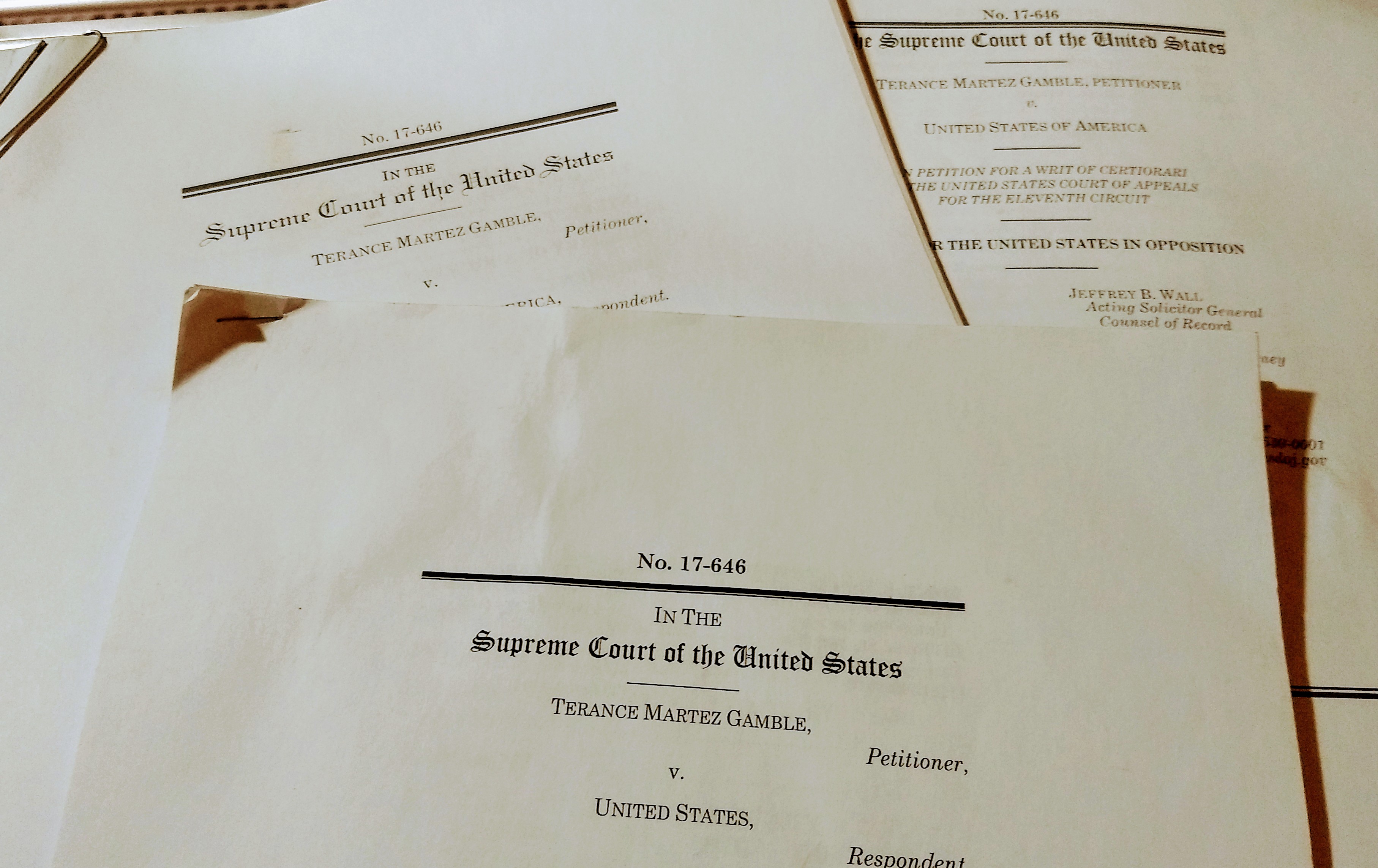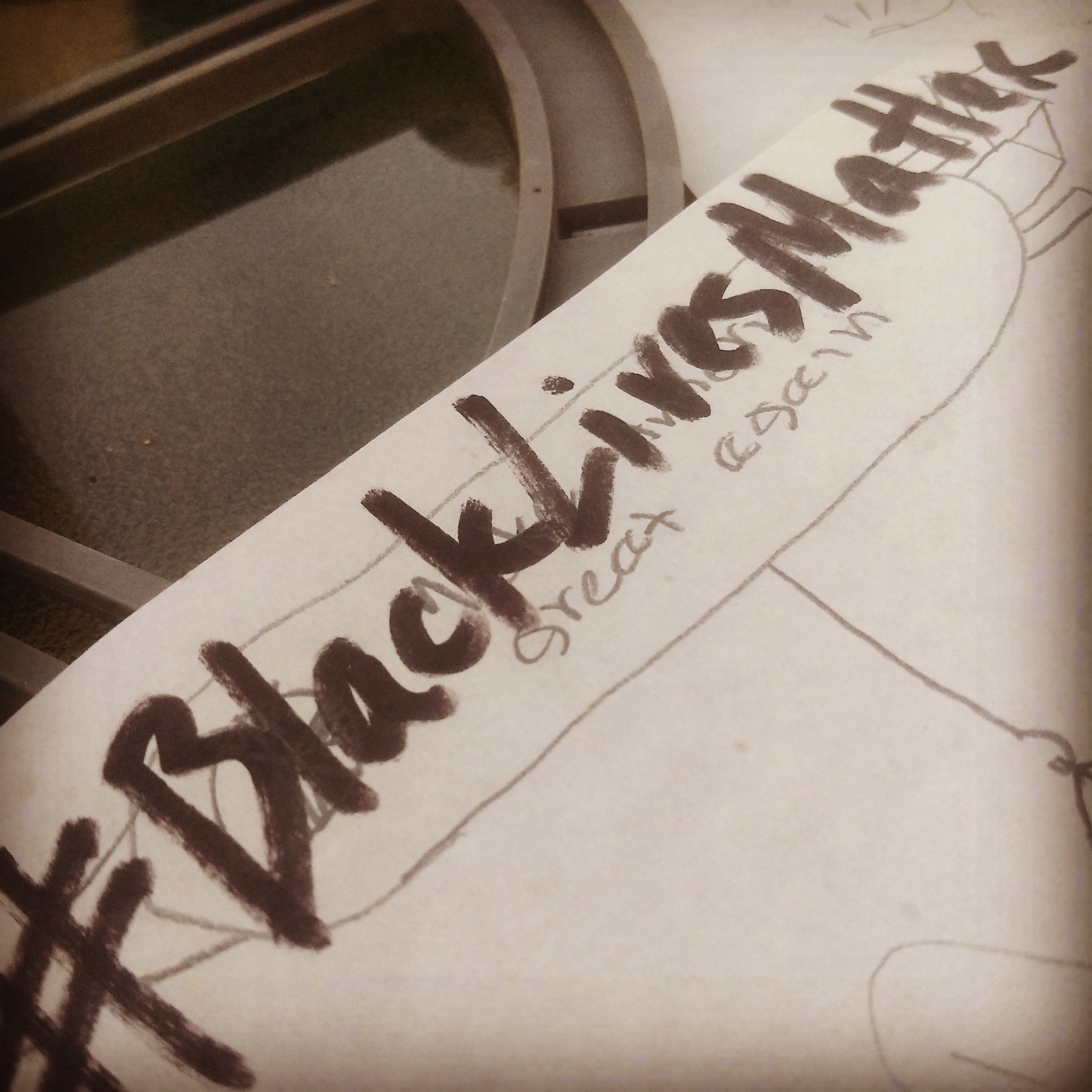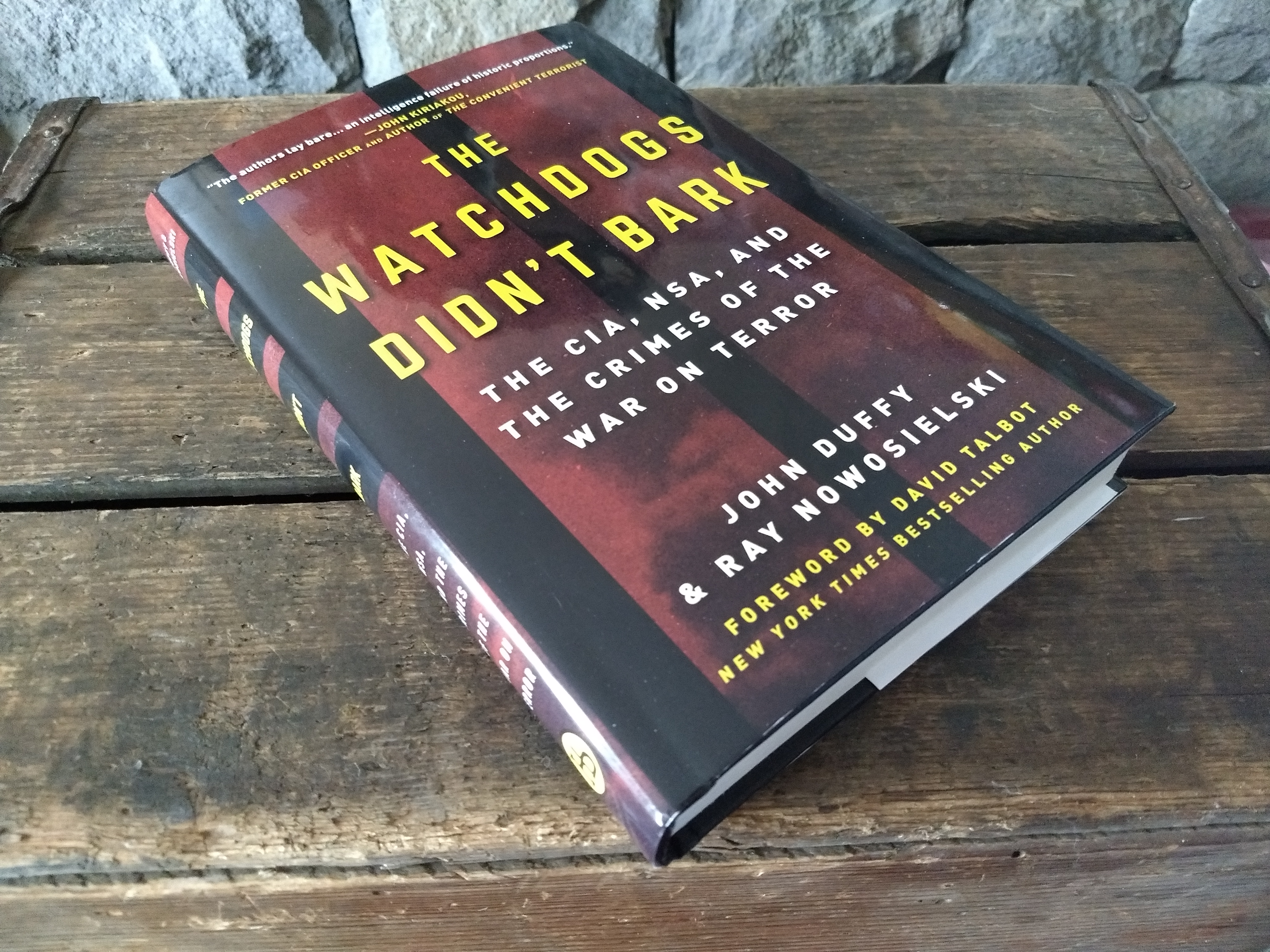
Katie Aguilera
The United States Supreme Court has upheld the dual sovereignty doctrine in a seven to two vote in the case Gamble v. United States. This doctrine holds that the States’ governments and the Federal government are separate sovereign entities and can therefore prosecute a defendant for the same offense without violating the Fifth Amendment’s double jeopardy clause.
See Supreme Court to weigh overturning separate-sovereigns doctrine in Gamble v. United States for more on arguments for and against Gamble v. United States and the dual sovereignty doctrine.
Justice Samuel Alito delivered the Court’s opinion. Justice Clarence Thomas filed a concurring opinion and Justices Ruth Bader Ginsburg and Neil Gorsuch filed dissenting opinions.
The decision argues that dual sovereignty is not an exception to protection from double jeopardy because the language of the Fifth Amendment “protects individuals from being twice put in jeopardy for the same offence, not for the same conducts or actions.” Alito writes, “as originally understood, then, an ‘offence’ is defined by a law, and each law is defined by a sovereign. So where there are two sovereigns, there are two laws, and two offences.”
The Court’s opinion goes on to discuss the concern that overturning dual sovereignty would result in the United States no longer having the legal authority to prosecute people who have been prosecuted for the same offence in other sovereign countries.
Citing late-colonial American objection to the so-called Murderers’ Act of 1751 Alito argues that, “on Gamble’s reading, the same Founders who quite literally revolted against the use of acquittals abroad to bar criminal prosecutions here would soon give us an Amendment allowing foreign acquittals to spare domestic criminals. We doubt it.”
“This principle comes into still sharper relief when we consider a prosecution in this country for crimes committed abroad. If, as Gamble suggests, only one sovereign may prosecute for a single act, no American court–state or federal–could prosecute conduct already tried in a foreign court.”
SCOTUS opinion in Gamble v. United States
The decision also argues that Gamble’s arguments are not compelling enough to overturn 170 years of precedents set by previous Supreme Court decisions. “All told, this evidence does not establish that those who ratified the Fifth Amendment took it to bar successive prosecutions under different sovereigns’ laws–much less do so with enough force to break a chain of precedent linking dozens of cases over 170 years.”
In his concurring opinion, Justice Thomas admits to initial skepticism of the dual sovereignty doctrine, but was swayed by the historical record. He makes note that “we are not entitled to interpret the Constitution to align it with our personal sensibilities about ‘unjust’ prosecutions.” He adds in parenthesis, “While the growing number of criminal offenses in our statute books may be cause for concern, no one should expect (or want) judges to revise the Constitution to address every social problem they happen to perceive.”
The majority of his opinion relates to the Court’s reliance on the doctrine of stare decisis, in which the Court typically upholds previous Supreme Court rulings as legal precedent. He writes “in my view, the Court’s typical formulation of the stare decisis standard does not comport with our judicial duty under Article III because it elevates demonstrably erroneous decisions–meaning decisions outside the realm of permissible interpretation–over the text of the Constitution and other duly enacted federal law.”
In her dissenting opinion, Justice Ginsburg cites previous Supreme Court decisions that upheld dual sovereignty and writes, “I would not cling to those ill-advised decisions.”
She argues against the concern over crimes committed and prosecuted abroad. “Gamble was convicted in both Alabama and the United States, jurisdictions that are not foreign to each other.” She goes on to explain “in the system established by the Federal Constitution…’ultimate sovereignty’ resides in the governed…Insofar as a crime offends the ‘peace and dignity’ of a sovereign,…that ‘sovereign’ is the people, the ‘original fountain of all legitimate authority…States may be separate, but their populations are part of the people composing the United States.”
Justice Ginsburg also addresses the reliance on stare decisis, writing it is not an “inexorable command….Our adherence to precedent is weakest in cases ‘concerning procedural rules that implicate fundamental constitutional protections.'”
She goes on to write “the expansion of federal criminal law has exacerbated the problems created by the separate-sovereigns doctrine. Ill effects of the doctrine might once have been tempered by the limited overlap between federal and state criminal law…In the last century, however, federal criminal law has been extended pervasively into areas once left to the States.”
“This situation might be less troublesome if successive prosecutions occurred only in ‘instances of peculiar enormity, or where the public safety demanded extraordinary rigor’…The run-of-the-mill felon in-possession charges Gamble encountered indicate that, in practice, successive prosecutions are not limited to exceptional circumstances.”
Justice Ginsburg, dissenting opinion, Gamble v. United States.
Ginsburg concludes her dissent by pointing out the dual sovereign doctrine has been criticized by “members of the bench, bar, and academy.” She writes “different parts of the ‘WHOLE’ United States should not be positioned to prosecute a defendant a second time for the same offense. I would reverse Gamble’s federal conviction.”
Justice Gorsuch argues in his dissent, “‘separate sovereigns exception’ to the bar against double jeopardy finds no meaningful support in the text of the Constitution, it’s original public meaning, structure, or history. Instead, the Constitution promises all Americans that they will never suffer double jeopardy. I would enforce that guarantee.”
He also disagrees with the idea that an offence against the laws of separate sovereigns is two offenses. He cites Blockburger v. United States to argue “if two laws demand proof of the same facts to secure a conviction, they constitute a single offense under our Constitution and a second trial is forbidden.”
“Tellingly, no one before us doubts that if either the federal government or Alabama had prosecuted Mr. Gamble twice on these facts and in this manner, it surely would have violated the Constitution.”
Justice Gorsuch, dissenting opinion, Gamble v. United States
He argues that assigning different aspects of power to the federal and state governments is meant to limit governmental power rather than multiply it. The dual sovereign doctrine goes against this premise as it allows the federal and state governments to do together what neither can do alone, that is, prosecute someone for the same offense.
Gorsuch also addresses stare decisis, arguing it should not be used to ignore precedents that can’t be supported by the Constitution. He offers examples of historic cases previously used as precedents that have been overturned, including Korematsu v. United States.
He writes, “with the text, principles of federalism, and history now arrayed against it, the government is left to suggest that we should retain the separate sovereigns exception under the doctrine of stare decisis. But if that’s the real basis for today’s result, let’s at least acknowledge this: By all appearances, the Constitution, as originally adopted and understood did not allow successive state and federal prosecutions for the same offense, yet the government wants this Court to tolerate the practice anyway.”
Like Ginsburg, Gorsuch also expresses concern over the increasing number of Federal crimes on the books and the resulting effect on the use of the dual sovereign doctrine. “In the era when the separate sovereigns exception first emerged, the federal criminal code was new, thin, modest and restrained. Today, it can make none of those boasts…If long ago the Court could have thought ‘the benignant spirit’ of prosecutors rather than unwavering enforcement of the Constitution sufficient protection against the threat of double prosecutions, it’s unclear how we still might.”
He concludes, “the separate sovereigns exception was wrong when it was invented, and it remains wrong today.”
Unfortunately, as Justice Ginsburg pointed out, this doctrine isn’t relegated to use in unusual and extreme cases. And it isn’t difficult to imagine it will become more and more common to see cases prosecuted under this doctrine as the number of crimes prosecutable under Federal law grows. It can happen to people who were acquitted in their original trial. It can happen years after the original trial and time served. It can happen when original charges are dropped.
The end result is more loss of rights, longer prison sentences, a growing prison population, and traumatic disruption, even destruction, of the lives of those charged and their families.
“When governments may unleash all their might in multiple prosecutions against an individual, exhausting themselves only when those who hold the reins of power are content with the result, it is ‘the poor and the weak’ and the unpopular and controversial, who suffer first–and there is nothing to stop them from being the last.”
Justice Gorsuch, dissenting opinion, Gamble v. United States.
*********


 I’ve struggled with what to say since watching the footage of George Floyd
I’ve struggled with what to say since watching the footage of George Floyd  On October 31, 2019, Fox News aired a short
On October 31, 2019, Fox News aired a short 


 I’ve recently finished a book I’ve been anxious to read since hearing of it’s release. This book is
I’ve recently finished a book I’ve been anxious to read since hearing of it’s release. This book is